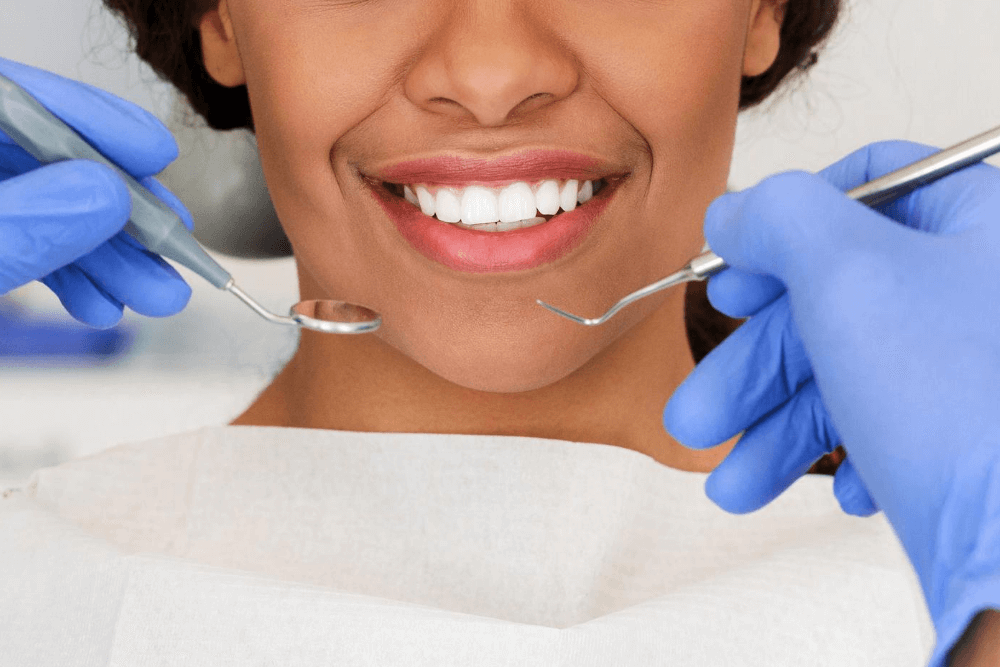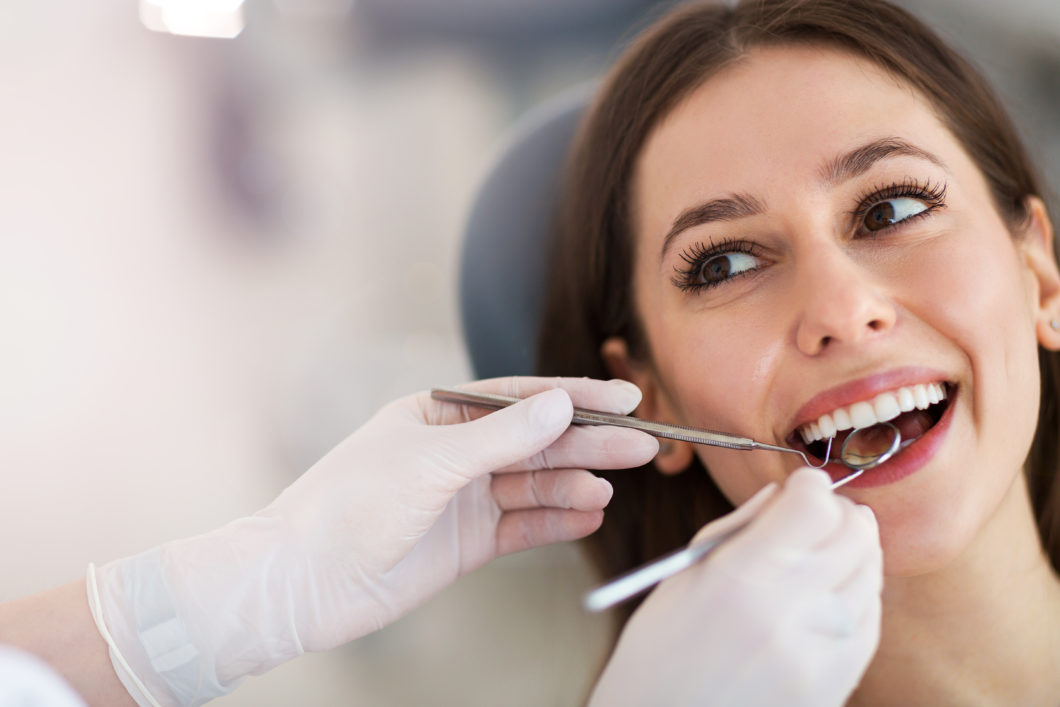Dental hygiene
Dental Hygiene Promotes Good Oral Health
You’ve definitely heard dentists, and oral care commercials on TV stress the importance of good dental hygiene practices before. The fact is that no dental treatment will be effective long-term unless you follow it up with routine and proper home care. This means you should brush and floss regularly after every meal and at minimum twice a day. The key is not only to do it regularly but also to do it right. Here’s how.

Flossing
To properly floss you should wind the floss around both of your index fingers and push it between each of your teeth in your mouth. Make sure to freely move the floss upwards, downwards and even sideways to remove any food particles and plaque that may be lodged between your teeth or under your gums. Don’t use too much force as you could damage your gums that way. Take it slow and steady to clean between your teeth and under your gum line.
Brushing
Many people these days use an electric toothbrush such as a Sonicare. Whether you use an electric or still prefer a manual brush, you should hold the brush at a 45-degree angle to your teeth. Gently but thoroughly brush in small circles across your teeth and under your gums with a backward and forward motion. Be sure to also get the top surfaces of your teeth where you bite or chew your food as well. Your tongue can also be cleaned with your toothbrush, which will help reduce bad breath. It is important to brush the inside surfaces of your teeth with the same rotating motion. Many people often neglect the inside surfaces and the very back of their rear molars, so be sure to brush thoroughly in those places as well.
When brushing, it is important to use toothpaste that contains fluoride. Fluoride helps harden the outer layer of the tooth, called enamel, which will prevent cavities and also reduce bacteria in the mouth. It can also reverse the formation of smaller cavities. Increasing enamel strength is important because people often consume foods and beverages that are highly acidic which causes the enamel to slowly wear. Lost enamel can’t be replaced and puts your teeth at a higher risk of developing cavities, so make sure your toothpastes contains flouride.
Lastly, antibacterial rinses with mouthwash can also help reduce bacteria in the mouth. Ask us about which mouthwash products are best to use in your specific case.

Dental Cleaning Services In Orleans
Practicing good oral hygiene is definitely important for maintaining good oral health. However, no amount of brushing, flossing, and rinsing can keep your mouth completely clean forever. Dental calculus, or tartar forms from plaque and can only be safely and properly removed by a dental hygienist. Tartar traps bacteria on the surface of your teeth which will eventually lead to cavities, or worse, an infection which requires extra treatments to address. For those who practice good oral hygiene, we advise booking an appointment for a dental cleaning once every 6 months. If your oral hygiene practices have slipped in recent months or years, or we determine the presence of periodontitis (gum disease), then we will recommend you see us more frequently for cleanings until your oral health improves.
Trust Affinity Dental For Your Dental Hygiene Needs
At Affinity Dental, our number one priority is your oral health. Our team of expert dentists, dental assistants, dental hygienists and support staff make it their mission to provide the highest quality of service possible so your mouth stays clean and healthy. We also take pride in our mission to make the time you spend with us a comfortable experience. If you are looking for a new dentist in Orleans, then look no further than Affinity Dental. Contact us today to book an appointment!
